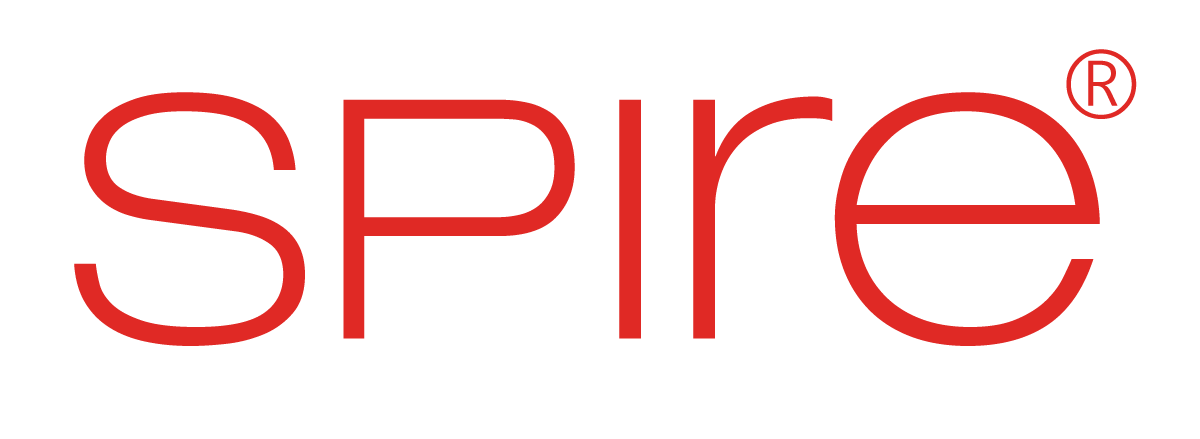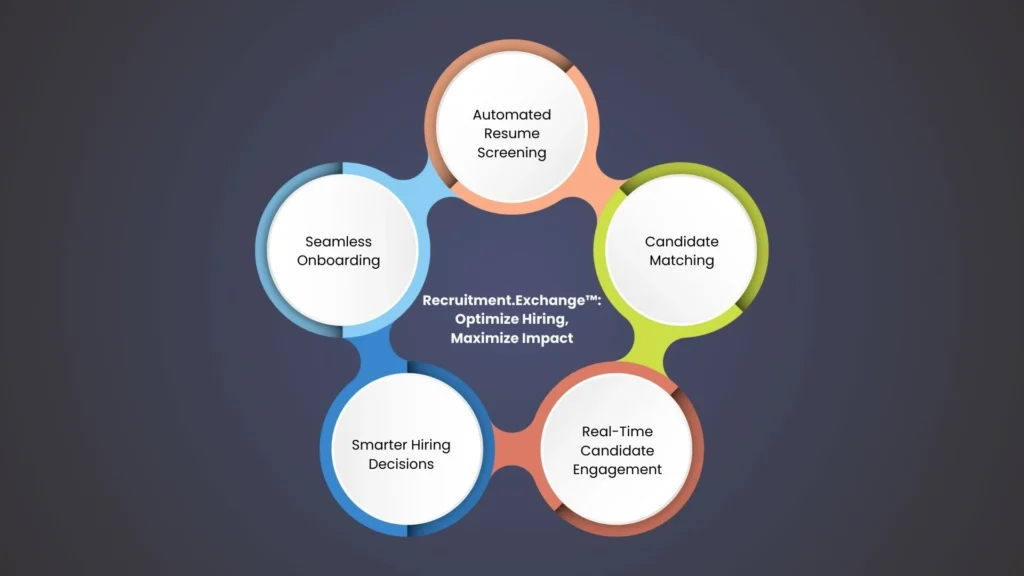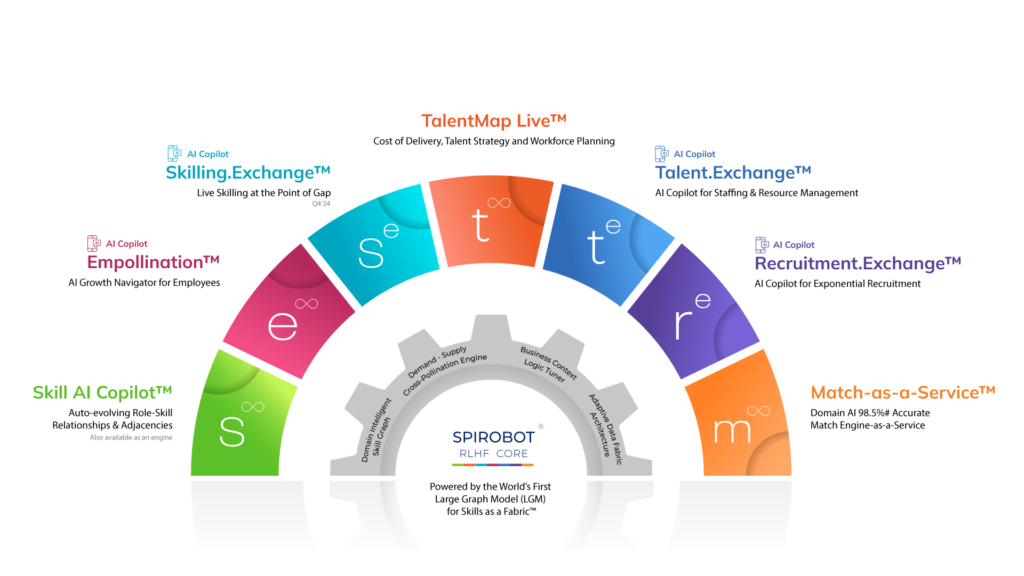Time is a competitive advantage in talent acquisition. For Fortune 500 companies managing high-volume hiring, every delay in recruitment turnaround time (TAT) impacts productivity, revenue, and business continuity. Yet, traditional hiring processes, laden with manual screenings, multiple interview rounds, and slow decision-making often lead to prolonged hiring turnaround times.
AI-driven hiring solutions like Recruitment.Exchange™ and intelligent AI Career Copilots are redefining talent acquisition, offering Fortune 500 organizations an efficient, scalable, and precise approach to hiring. These solutions reduce recruitment turnaround time without compromising on candidate quality, enabling HR leaders to fill critical roles faster.
This blog explores how advanced solutions like Domain-Intelligent AI are reshaping recruitment, reducing hiring turnaround time, and providing enterprises with a strategic edge.
The Impact of Prolonged Hiring Turnaround Time
A recent study found that top talent is typically off the market within 10 days, yet the average time to fill a role exceeds 40 days for many large enterprises. Delays in recruitment turnaround time can lead to:
- Higher Costs: According to the Society for Human Resource Management (SHRM), every unfilled position costs companies an average of $500 per day, which accumulates significantly for large enterprises. The financial burden is even greater for specialized roles, where companies may incur additional expenses for temporary staffing, project delays, and lost business opportunities.
- Talent Loss: Research from Glassdoor indicates that 60% of job seekers lose interest in an opportunity if the hiring process takes too long, with 49% accepting a different offer due to prolonged delays. This means organizations risk losing highly qualified candidates to competitors who move faster in their hiring process.
- Poor Candidate Experience: A lengthy recruitment process negatively impacts employer branding. CareerBuilder reports that 80% of candidates who experience delays are less likely to reapply for future roles and are less inclined to recommend the employer to others. This results in a reduced talent pipeline and potential reputational damage in the job market.
- Reduced Business Agility: Workforce shortages due to delayed hiring can disrupt project timelines and innovation efforts, slowing down corporate growth and market competitiveness. A McKinsey study found that companies with slow hiring processes experienced a 15% drop in productivity, as remaining employees are forced to take on additional workloads, leading to burnout and reduced morale.
- Compliance Risks: In certain industries, such as healthcare and finance, unfilled positions due to hiring delays can lead to regulatory non-compliance. Companies may face legal challenges, service disruptions, and potential penalties due to understaffing in critical areas.
Long hiring cycles result in lost productivity, increased costs, and candidate drop-offs.
Given these challenges, reducing recruitment turnaround time is not just a convenience—it’s a necessity for maintaining competitiveness and ensuring long-term organizational success.
How AI-Powered Solutions Reduce Recruitment Turnaround Time
The increasing demand for top talent and the competitive nature of today’s job market make it crucial for organizations to streamline their hiring processes. AI-powered solutions offer a transformative approach to recruitment by automating time-consuming tasks, enhancing decision-making, and improving overall efficiency. By integrating AI-driven tools, companies can significantly reduce recruitment turnaround time, accelerate hiring cycles, and maintain high candidate quality.
AI-powered platforms have become a game-changer in talent acquisition, offering automation, predictive analytics, and intelligent decision-making to accelerate hiring processes. One such advanced platform is Recruitment.Exchange™, an AI-driven solution developed by Spire.AI to revolutionize how enterprises approach hiring.
What Is Recruitment.Exchange™?
Recruitment.Exchange™ is an AI-powered recruitment platform designed to streamline the hiring process, reduce hiring turnaround time, and enhance candidate quality. By leveraging Domain-Intelligent AI and predictive analytics, Recruitment.Exchange™ enables HR teams to efficiently source, screen, and onboard top talent.
These solutions not only free up recruiters’ time but also ensure a data-driven approach that minimizes biases and optimizes candidate matching. Below are some of the key ways Recruitment.Exchange™ is revolutionizing hiring and recruitment workflows.
1. Automated Resume Screening and Candidate Matching
Traditional recruitment requires HR teams to sift through thousands of resumes manually, leading to inefficiencies and unconscious bias. AI-driven resume screening tools powered by Recruitment.Exchange™ uses Domain-Intelligent AI and Large Graph Model (LGM) for Skills to:
- Instantly analyze and rank candidates based on job-fit scores.
- Identify key skills, experiences, and competencies aligned with the role.
- Minimize human bias, ensuring data-driven selection.
A LinkedIn study found that AI-powered resume screening reduced manual resume review time by 75%, allowing recruiters to focus on high-value interactions with top candidates.
2. AI Career Copilots for Real-Time Candidate Engagement
AI Career Copilot serves as a virtual assistant for candidates, guiding them throughout the hiring journey and acting as a personalized career coach. This AI-driven system enhances candidate engagement and experience by providing them with an overview of open jobs and reskilling recommendations via online courses and training programs based on the candidates’ skills, experience, and aspirations.
3. Predictive Analytics for Smarter Hiring Decisions
AI doesn’t just automate tasks; it also enhances decision-making. Predictive analytics embedded in platforms like Recruitment.Exchange™ analyzes historical hiring data to:
- Forecast candidate success based on past performance metrics.
- Identify potential attrition risks before hiring.
- Recommend best-fit candidates with higher retention probability.
A McKinsey report found that companies using predictive hiring models see a 25% improvement in hiring accuracy and 40% lower turnover rates.
4. Seamless Onboarding with AI Automation
Hiring doesn’t end at offer acceptance—delays in onboarding can lead to disengagement and potential drop-offs. Domain-AI streamlines onboarding by:
- Automating document verification and background checks.
- Providing personalized onboarding experiences.
- Setting up automated workflows for provisioning IT access, payroll, and compliance.
Studies show that organizations with AI-driven onboarding programs have 82% higher retention rates in the first year compared to those without.
The Fortune 500 Case for AI in Talent Acquisition
Fortune 500 companies operate at a scale where hiring efficiency directly impacts business performance. The ability to quickly identify, assess, and onboard top talent is critical in maintaining market leadership and driving innovation. Many leading organizations are turning to AI-powered recruitment solutions to optimize their hiring processes and reduce talent acquisition turnaround times.
By leveraging AI-driven platforms like Recruitment.Exchange™, companies are seeing substantial improvements in recruitment efficiency and candidate quality. AI’s ability to process vast amounts of data, predict candidate success, and automate routine tasks enables HR teams to focus on strategic talent acquisition rather than being bogged down by administrative bottlenecks.
Companies integrating AI into their recruitment workflows report significant performance gains:
- Reduction in hiring turnaround time, allowing businesses to secure top talent before competitors.
- Improvement in quality of hires, driven by AI’s precision in matching candidates to job requirements.
- Reduction in cost per hire, as automation minimizes manual effort and enhances resource allocation.
- Increase in recruiter productivity, freeing HR teams from time-consuming administrative work and enabling them to focus on high-value interactions with candidates.
Additionally, AI-powered hiring tools help these enterprises reduce bias in decision-making, standardize candidate evaluations, and enhance candidate engagement through personalized experiences. This shift not only improves recruitment effectiveness but also strengthens employer branding by providing a seamless and efficient hiring process.
With AI streamlining workflows, HR leaders in Fortune 500 companies can allocate resources more strategically, ensuring their organizations remain agile, competitive, and attractive to top talent in a rapidly shifting job market.
Overcoming AI Adoption Challenges
While AI offers transformative benefits, HR leaders must navigate several challenges to ensure a smooth and ethical adoption. Implementing AI in recruitment requires careful planning, compliance adherence, and workforce training to fully harness its capabilities.
Data Privacy & Compliance
Ensuring AI aligns with global hiring regulations (GDPR, EEOC, etc.) is crucial to protecting candidate data. Organizations must implement strong data governance policies to safeguard applicant information and ensure AI tools are designed with compliance in mind.
A key milestone in this effort is achieving Spire.AI’s SOC 2 certification, which validates the commitment to data security, privacy, and regulatory compliance. This certification ensures that AI-driven recruitment solutions are developed with the highest data protection standards, reinforcing trust with employers and candidates alike.
Bias Mitigation
AI models must be continuously refined to prevent algorithmic bias. A study by Google found that ethically trained AI reduces bias by 35% in hiring decisions, highlighting the importance of continuous monitoring and improvement. Organizations should regularly audit their AI systems to detect and eliminate any bias that could affect hiring decisions. Transparency in AI-driven processes and diverse training datasets also contribute to fairer recruitment outcomes.
Change Management
Successfully integrating AI into recruitment processes requires HR teams to embrace new technologies and workflows. Without proper change management, AI adoption may face resistance, leading to underutilization of its benefits.
A PwC study found that companies investing in AI training programs saw faster adoption rates, reinforcing the need for structured implementation strategies that promote confidence and efficiency among HR teams.
By addressing these challenges proactively, organizations can maximize the potential of AI in recruitment, ensuring a fair, compliant, and efficient hiring process while fostering trust among candidates and HR professionals alike.
The Future of AI in Recruitment
AI is no longer a futuristic concept, it’s a business imperative for HR leaders looking to drive efficiency. As Fortune 500 companies scale, AI-driven recruitment solutions will continue to refine hiring strategies, creating faster, fairer, and more effective talent acquisition processes.
- The AI-powered recruitment market is projected to reach $1.75 billion by 2026.
- 76% of HR leaders believe organizations that fail to adopt AI solutions will fall behind competitors who do.
- Companies using AI in hiring see a faster hiring cycle compared to those using traditional methods.
Beyond automation, Domain-Intelligent AI will drive predictive workforce planning, improved DEI initiatives, and enhanced candidate experiences. AI-powered analytics will forecast workforce trends, identify skill gaps, and recommend upskilling opportunities, ensuring organizations stay ahead in talent acquisition.
By embracing Domain-AI, companies can achieve shorter recruitment turnaround times, improved candidate experiences, and sustained hiring success in competitive talent markets. The integration of Domain-Intelligent AI into recruitment is not just a trend, it is the future of talent acquisition, positioning organizations for long-term growth and innovation.
Looking Ahead
Reducing talent acquisition TAT is a strategic priority for large enterprises and AI-powered platforms like Recruitment.Exchange™ and AI Career Copilots by Spire.AI are redefining how organizations attract, engage, and onboard top talent.
For HR and talent leaders seeking efficiency without compromise, Domain-AI is the key to accelerating hiring turnaround time while maintaining high candidate quality. The future of recruitment is here, and it’s AI-driven.







